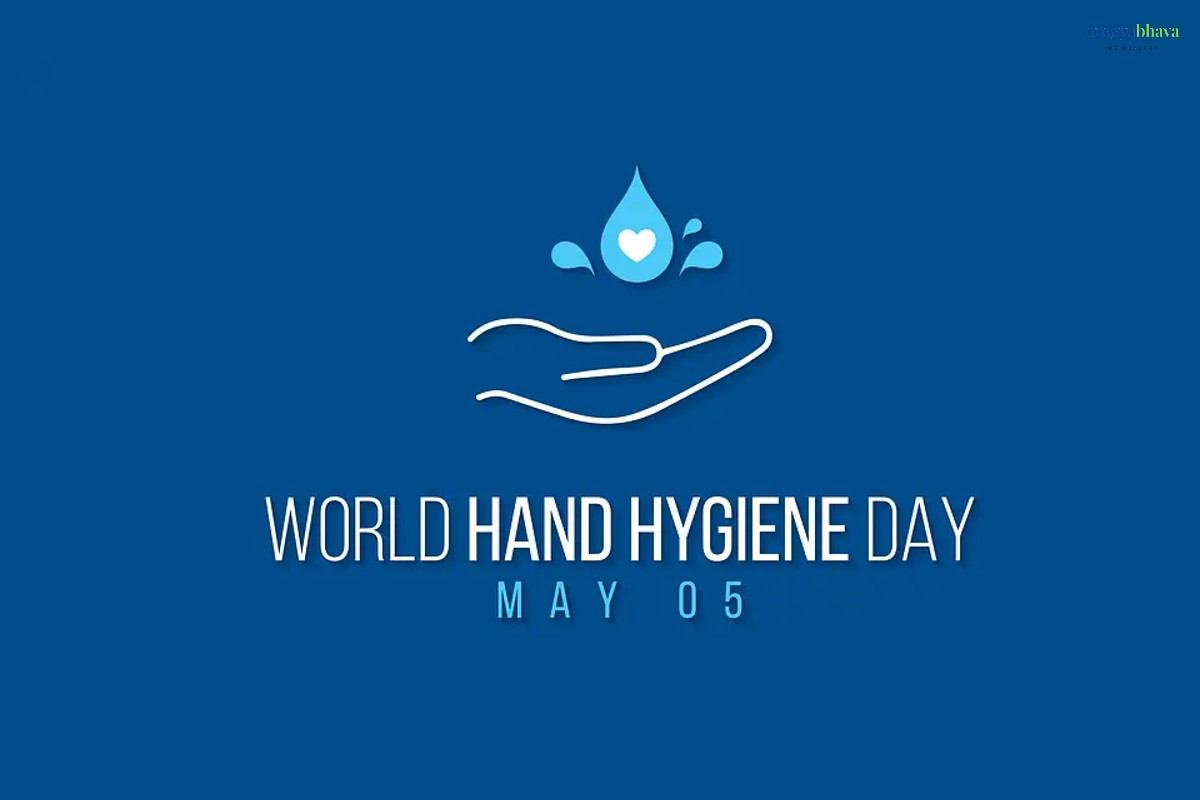World Hand Hygiene Day

The Clean Your Hands campaign aims to further the objective of ‘bringing people together’ in favor of hand hygiene improvement globally and to maintain an international profile on the significance of hand hygiene in health care.
WHO appeals to everyone to be motivated by the international campaign to reach universal health coverage, or more significant health and well-being for all people at all ages, including financial threat security, access to best essential health care services, and access to safe, adequate, quality, and affordable, necessary medications and vaccinations for everyone. To achieve UHC, infection prevention and control, including good hand hygiene, is essential. It is because infection prevention and control is a realistic, evidence-based strategy that has a noticeable influence on the standard of care and patient safety at all health system levels.
History of World Hand Hygiene Day
The WHO First Worldwide Patient Safety Challenge: Clean Care is Safer Care activity, which is now the WHO IPC global unit, was a natural continuation of the WHO SAVE LIVES: Clean Your Hands annual global campaign, which was started in 2009 as part of a significant global push to enhance hand hygiene in healthcare, led by WHO to support healthcare workers.
Save lives: Clean Your Hands’ central message is that all healthcare professionals should wash their hands correctly and at the appropriate intervals.
The World Health Organization (WHO) is leading a significant global project called WHO SAVE LIVES: Clean Your Hands to assist healthcare professionals in enhancing hand hygiene in the delivery of healthcare and so supporting the prevention of HAI, which is frequently fatal.
It integrates an annual global day to highlight the significance of enhancing hand hygiene in healthcare, with WHO supporting these initiatives. As a result, a set of hand hygiene improvement tools and materials are in the market using a foundation of already published research and data, rigorous testing, close collaboration with various subject-matter experts, and various tools and materials. The instruments are to assist in putting a multimodal strategy for enhancing and maintaining hand hygiene in healthcare into reality.
Handwashing minimizes the transmission of contagious diseases:
Contaminated hands can transmit various infectious diseases from one person to another. These illnesses include respiratory infections like the flu, colds, and coronavirus and gastrointestinal disorders like salmonellosis (COVID-19).
Washing your hands with soap and water and drying them completely will stop the spread of the bacteria and viruses that cause these illnesses. However, particularly in young infants, the elderly, or people with compromised immune systems, some gastrointestinal and respiratory infections can result in serious problems.
What is the significance of World Hand Hygiene Day?
World Hand Hygiene Day, observed on May 5 each year, aims to raise awareness of the simple, cost-effective, and life-saving benefits of washing one’s hands with soap and water. For example, the risk of diarrhea and pneumonia, which can result in severe illness and death, can be significantly reduced by washing hands with soap after using the restroom or eating. Additionally, washing one’s hands with soap can help stop the spread of COVID-19 and other viruses and infections.
-
How can you participate in World Hand Hygiene Day?
- Everyone can help promote effective hand hygiene health in various aspects:
-
Medical personnel:
- Always wash your hands before providing care.
- Please ensure you are aware of the proper way to wash your hands and its significance.
-
Practitioners of infection prevention and control:
- Be an advocate and role model for using clean hands when providing care.
- Support the hand hygiene program at your organization.
-
Managers of health service organizations:
- Make sure your company has a functioning hand hygiene program.
- Make sure there are supplies for hand washing at each point of care.
-
Families and patients:
- Please wash your hands as well so we can help you.
-
Everyone:
- Make it a habit always to have clean hands; it protects us all.
Conclusion:
People have realized that practicing good hand hygiene can save lives and stop the spread of dangerous viruses and germs as we fight the deadly COVID-19 pandemic. The purpose of World Hand Hygiene Day is to raise awareness, educate the public, and bring people together to discuss the importance of practicing good hand hygiene every day. It is an easy, affordable, and efficient way to safeguard your health.
FAQs:
1. Do we need to wash our hands after using Hand Sanitizer?
Ans: It would help if you used hand sanitizer only when water and soap are unavailable, such as when traveling or outside. If you choose to use it, you should only do so if you believe you may have come into contact with additional germs, such as by touching something.
2. Does it make any difference if I wash my hands with warm or cold water?
Ans: No proof that using warm or cold water when washing your hands makes a difference in the number of bacteria killed. Regardless of the water’s temperature, using soap is crucial.